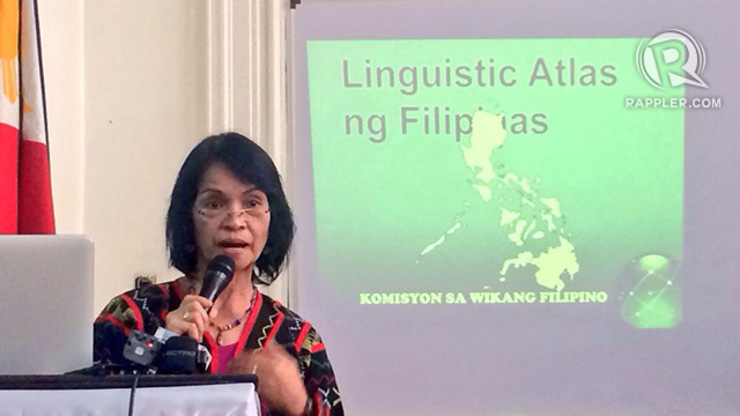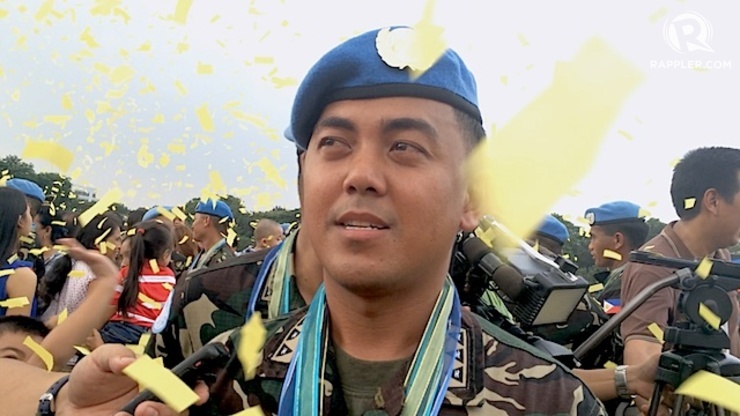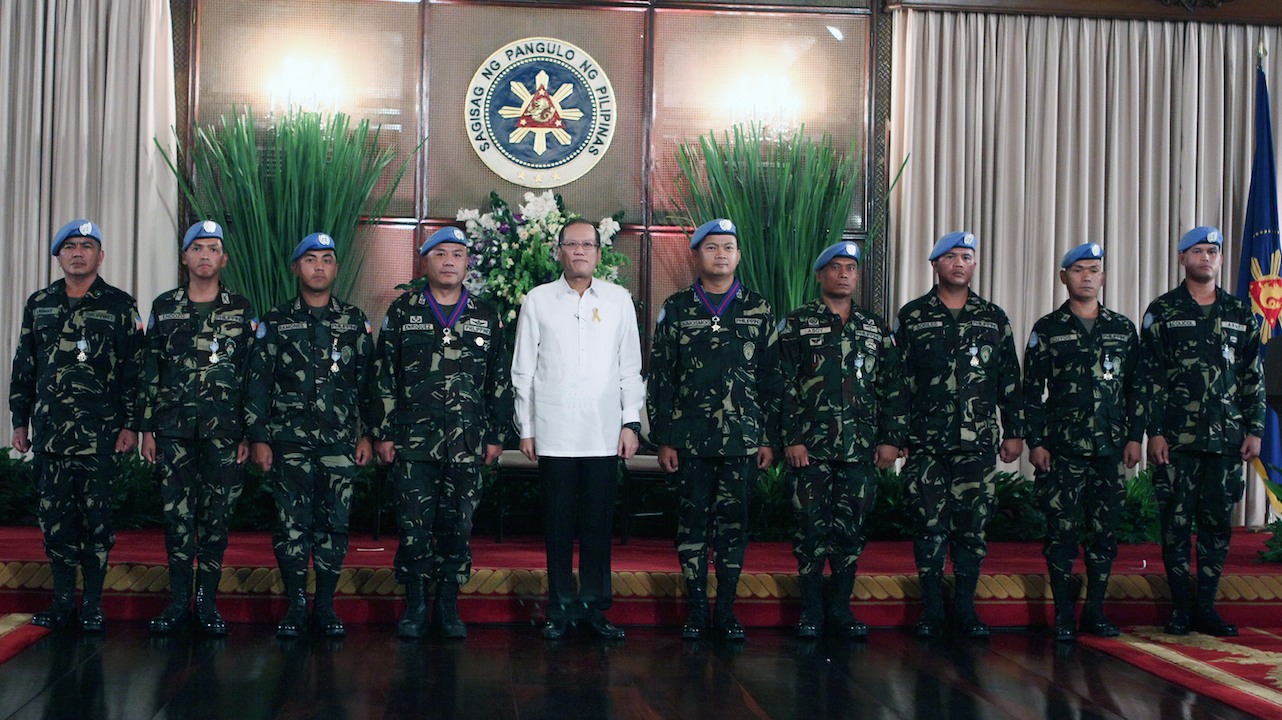From the Philippine Daily Inquirer (Oct 2): 2 top CPP leaders fall; mistaken identities, say kin
CITY OF SAN FERNANDO, Philippines—Police and military teams arrested two top officials of the Communist Party of the Philippines (CPP) on Wednesday in Mexico town in Pampanga, a spot report to the regional police in Camp Olivas, south of here, said.
Eugenia Magpantay and her husband, Agaton Topacio, were arrested in a house on Tinajero St. in Barangay (village) San Antonio at past 5 p.m. on the strength of a warrant for a murder case filed in 2005, the report said.
Their arrests came a few months after Wilma and Benito Tiamzon–tagged as CPP’s topmost ranking officials–were arrested in Cebu.
It said that Magpantay, who went by the aliases Reming and Milan, was a central committee member and former secretary of the Central Luzon Regional Committee (CLRC) of the CPP.
Topacio used to be a member of the CLRC and lately served as head of the national secretariat of the CPP.
According to the report, the members of the arresting teams came from the regional and Pampanga police, the Philippine Army’s 48th Infantry Battalion, 703rd Infantry Brigade and Intelligence Unit.
But residents in Mexico claimed that the police and the military arrested the wrong persons.
Their relatives identified them as Lourdes David Quioc and Reynaldo Canlas Ingal.
They have been held in Camp Olivas since Wednesday night.
Told of the supposed mistaken identities, a police official said they would be released only after validation. But it appeared that their identities had been verified as the two suspects were scheduled to be presented in a media briefing at 9 a.m. Thursday.
http://newsinfo.inquirer.net/642123/2-top-cpp-leaders-fall-mistaken-identities-say-kin
It is confused with surrender of firearms to government or their destruction, as was true in Aceh in Indonesia. Very surely, it is not of the same mold with the traditional DDR (Demobilization, demilitarization, and Reintegration) adopted by the United Nations, which clearly favors states or governments by treating rebels as enemy of the state including even those which have clear legitimate causes.
As applied in the GPH-MILF peace process, decommissioning is a formula that balances the principled stance of the MILF that any tint or semblance of surrender is not only politically wrong but more seriously an act of disobedience to Allah and that only duly constituted government or state has the sole legitimacy to hold or control the guns. "Who are in need of guns in the Bangsamoro when everything normalizes?" is an oft-repeated statement of MILF leaders.
The Annex on Normalization of the Framework Agreement on the Bangsamoro (FAB) has these related provisions on decommissioning : 1) The MILF shall undertake a graduated program for decommissioning of its forces so that they are put beyond use; and 2) Decommissioning shall be a process that includes activities aimed at achieving a smooth transition for the BIAF members to productive life.
Actually, there seems to be an oversight on the parties related to Item No. 1 above on the issue of "decommissioning of MILF forces", because only weapons can be decommissioned not people. However, this is corrected and put in proper context by Item No. 2, which says that the process includes activities aimed at achieving a smooth transition for the BIAF members to productive life.
In plain words, what is decommissioning pursuant to the agreement of the parties?
It is simply no surrender of firearms nor of their destruction. They are not given or surrendered to the government. It is not disarming the MILF per se, as some uninformed media people would like to say. Most likely, the models in Northern Ireland and Nepal will be followed whereby firearms turned over are put in warehouses under the care and protection of third party decommissioning body composed of international and domestic eminent persons.
For this purpose, the GPH and MILF have organized the Independent Decommissioning Body (IDB) composed of Turkey, as chair, Norway, as vice chair, Brunei, as member, and two members each from the GPH and MILF. All the parties have sent their representatives to the GPH-MILF Special Meeting in Kuala Lumpur last September 27-29 where they have initially planned on how to proceed immediately with their mandate.
As agreed by the parties, decommissioning is not only linked to other parallel tracks in the overall normalization efforts but also contingent on deliveries of political milestones in the journey of the Bangsamoro Basic Law (BBL). However, on the part of the MILF, it will undertake that goodwill symbolic decommissioning of 75 firearms before this year ends. This is the Phase 1. The rest of the decommissioning will formally take place in three more phases: The MILF will decommission 30 percent of its weapons upon the passage of the BBL in Congress and ratification of the BBL in a plebiscite by the people called for the purpose; 35 percent upon establishment and operationalization of the Bangsamoro Police; and the remaining MILF weapons or 30 percent two months prior to the signing of the Exit Agreement provided that the evaluation of the Panels with the participation of the Third Party Monitoring Team (TPMT) and Facilitator that all the commitments of the parties have been completed.
Decommissioning is a very emotional and sensitive issue on the part of the MILF, but because of its sincerity and determination to solve the Bangsamoro Question in Mindanao, it has to undertake an ultimate sacrifice in exchange for peace and the settlement of the centuries-old conflict in Mindanao. The MILF is staking itself to the scrutiny of time and history and the vicious attacks of critics to prove that this is the right track to solve this question of problem. All other approaches are ideal and are simply not tenable.
http://www.luwaran.com/index.php/editorial/item/1246-decommissioning-of-milf-firearms-combatants



